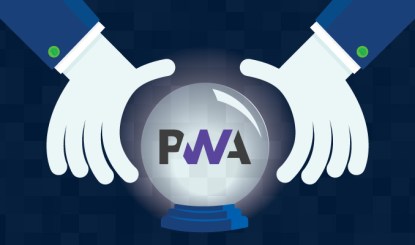Benefits of Progressive Web Apps (PWAs)
Progressive Web Apps, or PWAs, are a type of mobile applications that can be delivered to an end user through Google Chrome, Firefox, and Microsoft Edge. However, what makes PWAs unique as opposed to traditional websites or mobile web apps is the fact that PWAs behave almost entirely like a native application on your smartphone. PWAs support features like being able to access the application offline, enable push notifications (currently Android only), and in some cases depending on the operating system of the smart device, access hardware features. These include audio and video capture, fullscreen, touch gestures, and tons more!
Here are 5 great benefits to PWAs:
1. PWAs are installable, making it easily accessible from the home screen just like any other application. This is extremely beneficial to startup companies or companies looking to save on the cost of developing a native mobile application. Unlike its native counterpart, since a PWA is served via web browser, the application can be developed to work on any smartphone that has a supported web browser. In many cases, initial development costs can be greatly reduced by not having to develop an app for both Android and iOS. Additionally a membership for the Apple Developer Program will not be needed.
2. PWAs can be great for SEO. There are a few requirements that PWAs need to meet in order for them to be considered one by Google and allow the application to be installable. They must:
- Have a mobile first responsive design
- Load incredibly fast, even on 3G
- Be served over HTTPS
- Support cross browser compatibility
- Be offline capable
These technical requirements have great impact on how Google views the app and ultimately the associated ranking.
3. Traditional app updates and maintenance are a thing in the past with PWAs. Since the applications are served through a web browser, there is no need to update the app manually through an app store or enable a setting to automatically update the app. This can lead to user working on an outdated application which can have negative impacts if a critical update was pushed and the user did not update it. PWAs do not have that issue. Since they share all the benefits of a regular website, the PWA can be updated automatically every time the application is launched (depending on the configuration) as long as there is an internet connection. Additionally PWAs typically use less data than native apps, making them far less reliant on Wi-Fi connections in order to update.
4. Load times are faster with PWAs, as opposed to traditional websites. This can have a significant boost in revenue for companies. Faster load times means that more clients are engaged in the application, more engagement means more revenue. Web stores that take advantage of PWAs can also see a major reduction in server load. This means that clients will not have a degraded experience and always perform as intended, even with large amounts of traffic.
5. PWAs are small in size compared to their native counterparts. There is a certain level of commitment when downloading a traditional application. A user has to go to their respective app store, find the application they’re looking for, download and install it. If it’s a large application, a negative experience is created from long download times, especially in times where internet connection may be slow. PWAs allow users to seamlessly add them to their home screen, and since the size of the application is minimal, almost no wait time is needed for the user to start/continue using a PWA.
6. PWAs are rapidly becoming mainstream. Advantages like reduced development costs, greater search engine exposure, painless updates, and reduced data usage are appealing benefits for developers and users alike. While smartphone users may not have these on their phone today, it’s likely that in a couple years the landscape will be substantially different.
Contact Weidenhammer to discuss if a PWA is right for your company’s mobile app needs.
